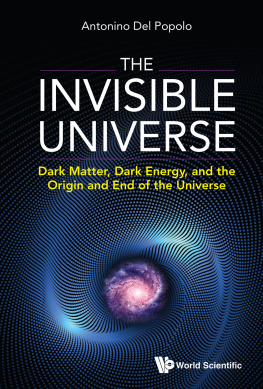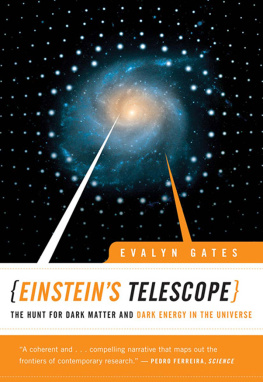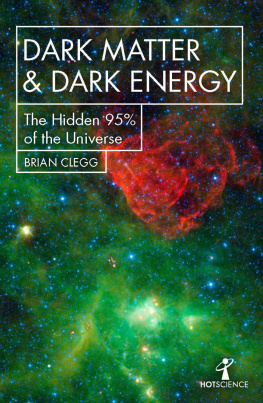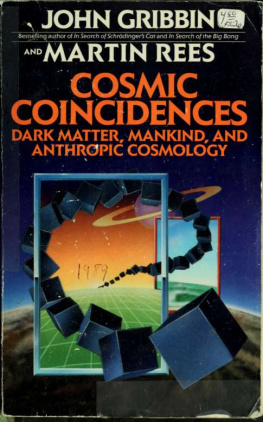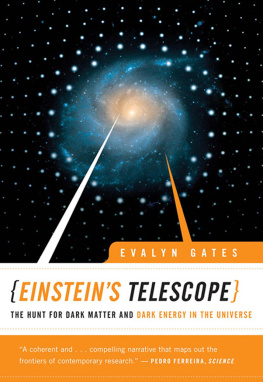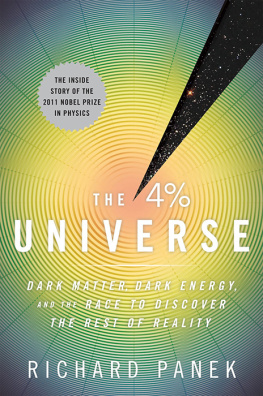Govert Schilling - The Elephant in the Universe : Our Hundred-Year Search for Dark Matter
Here you can read online Govert Schilling - The Elephant in the Universe : Our Hundred-Year Search for Dark Matter full text of the book (entire story) in english for free. Download pdf and epub, get meaning, cover and reviews about this ebook. publisher: Harvard University Press, genre: Children. Description of the work, (preface) as well as reviews are available. Best literature library LitArk.com created for fans of good reading and offers a wide selection of genres:
Romance novel
Science fiction
Adventure
Detective
Science
History
Home and family
Prose
Art
Politics
Computer
Non-fiction
Religion
Business
Children
Humor
Choose a favorite category and find really read worthwhile books. Enjoy immersion in the world of imagination, feel the emotions of the characters or learn something new for yourself, make an fascinating discovery.

- Book:The Elephant in the Universe : Our Hundred-Year Search for Dark Matter
- Author:
- Publisher:Harvard University Press
- Genre:
- Rating:5 / 5
- Favourites:Add to favourites
- Your mark:
- 100
- 1
- 2
- 3
- 4
- 5
The Elephant in the Universe : Our Hundred-Year Search for Dark Matter: summary, description and annotation
We offer to read an annotation, description, summary or preface (depends on what the author of the book "The Elephant in the Universe : Our Hundred-Year Search for Dark Matter" wrote himself). If you haven't found the necessary information about the book — write in the comments, we will try to find it.
Govert Schilling: author's other books
Who wrote The Elephant in the Universe : Our Hundred-Year Search for Dark Matter? Find out the surname, the name of the author of the book and a list of all author's works by series.
The Elephant in the Universe : Our Hundred-Year Search for Dark Matter — read online for free the complete book (whole text) full work
Below is the text of the book, divided by pages. System saving the place of the last page read, allows you to conveniently read the book "The Elephant in the Universe : Our Hundred-Year Search for Dark Matter" online for free, without having to search again every time where you left off. Put a bookmark, and you can go to the page where you finished reading at any time.
Font size:
Interval:
Bookmark:
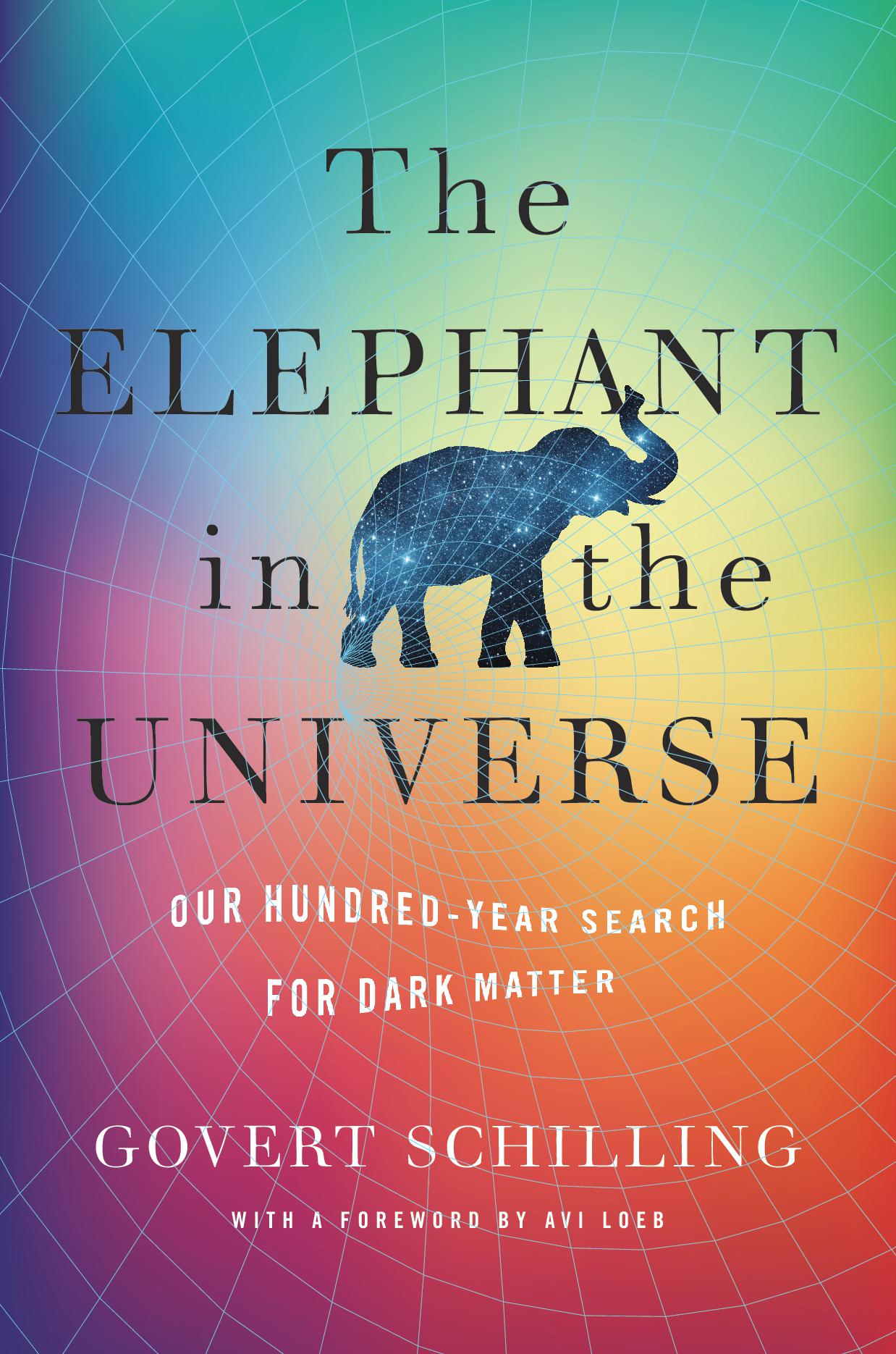
OUR HUNDRED-YEAR SEARCH FOR DARK MATTER
Govert Schilling
The Belknap Press of Harvard University Press
Cambridge, Massachusetts
London, England
2022
Copyright 2022 by Govert Schilling
Foreword copyright 2022 by the President and Fellows of Harvard College
All rights reserved
Cover design: Henry Sene Yee
978-0-674-24899-1 (cloth)
978-0-674-27617-8 (EPUB)
978-0-674-27618-5 (PDF)
The Library of Congress has cataloged the printed edition as follows:
Names: Schilling, Govert, author.
Title: The elephant in the universe : our hundred-year search for dark matter / Govert Schilling.
Description: Cambridge, Massachusetts : The Belknap Press of Harvard University Press, 2022. | Includes bibliographical references and index.
Identifiers: LCCN 2021034391
Subjects: LCSH: Dark matter (Astronomy)History. | CosmologyHistory.
Classification: LCC QB791.3 .S32 2022 | DDC 523.1/126dc23
LC record available at https://lccn.loc.gov/2021034391
A Hindoo Fable
It was six men of Indostan
To learning much inclined,
Who went to see the Elephant
(Though all of them were blind),
That each by observation
Might satisfy his mind.
The First approached the Elephant,
And happening to fall
Against his broad and sturdy side,
At once began to bawl:
God bless me!but the Elephant
Is very like a wall!
The Second, feeling of the tusk,
Cried: Ho!what have we here
So very round and smooth and sharp?
To me t is mighty clear
This wonder of an Elephant
Is very like a spear!
The Third approached the animal,
And happening to take
The squirming trunk within his hands,
Thus boldly up and spake:
I see, quoth he, the Elephant
Is very like a snake!
The Fourth reached out his eager hand,
And felt about the knee.
What most this wondrous beast is like
Is mighty plain, quoth he;
T is clear enough the Elephant
Is very like a tree!
The Fifth, who chanced to touch the ear,
Said: Een the blindest man
Can tell what this resembles most;
Deny the fact who can,
This marvel of an Elephant
Is very like a fan!
The Sixth no sooner had begun
About the beast to grope,
Then, seizing on the swinging tail
That fell within his scope,
I see, quoth he, the Elephant
Is very like a rope!
And so these men of Indostan
Disputed loud and long,
Each in his own opinion
Exceeding stiff and strong,
Though each was partly in the right,
And all were in the wrong!
So, oft in theologic wars
The disputants, I ween,
Rail on in utter ignorance
Of what each other mean,
And prate about an Elephant
Not one of them has seen!
John Godfrey Saxe, 1872
The term dark matter is used to represent most of the matter in the universefive times more prevalent than ordinary matter, like the atoms that make up stars and planets. But, as the name suggests, we cannot see dark matter. We infer its existence only indirectly through its gravitational influence on visible matter. In this way, dark matter encapsulates our ignorance.
Like all good mysteries, the puzzle of dark matter is enduring. It has intrigued scientists for a hundred years. Observations and scientific theories suggest that dark matter could be made of any number of hypothetical building blocks: weakly interacting massive particles, so-called axions, even atoms that do not interact with ordinary matter or light. Today there is a scientific consensus that dark matter likely came out of the fiery soup during the origins of the universe, an ocean of invisible particles with initially small random motions. Although scientists have not detected any of these invisible particles yet, they have measured the imprint of the fluctuations. Today those dark matter fluctuations are evident in the slightly varied brightness of the cosmic microwave background, the relic radiation left over from the big bang.
Lord Kelvin was the first to offer a dynamical estimate of what we now think of as dark matter. In a talk given in 1884, Kelvin theorized that there might be dark bodies in the Milky Way. Almost fifty years and many ideas later, Swiss-American astronomer Fritz Zwicky estimated that there is more mass in galaxy clusters than is visually observable. In the 1970s evidence for invisible particles was revealed through the pathbreaking work of Vera Rubin, Kent Ford, and Kenneth Freeman. They showed that the dynamics of gas and stars in galaxies imply the existence of invisible mass in a halo that extends well outside the inner region, where ordinary matter concentrates. And in 1983 Moti Milgrom proposed a theory of modified Newtonian dynamics to explain the missing-mass problem. In this alternative hypothesis of gravity, Milgrom postulated that Newtons laws do not apply to galaxies.
Like most explorations in science, historical theories of dark matter found supporters and critics. Milgroms simple prescription for modified dynamics at low accelerations accounts for the nearly flat rotation curves in many galaxy halos extremely well, even after four decades of scrutiny. But the theory does not adequately account for Zwickys observed properties of galaxy clusters. Another possibility is that dark matter is strongly self-interacting and avoids galactic cores. And the hypotheses continue.
Throughout this book, Govert Schilling leads us on a captivating tour through the theories of dark matter and efforts to observe it, from early times to the present day. Well travel with him to astronomical observatories on the ground and in space and to particle detectors in underground caves and tunnels. As we circle the globe, we meet the scientists, the protagonists of the story, who have spent their careers searching for a solution to the puzzle. It is a wide-ranging cast of characters. There are towering figures in the field of dark matter research, like Jim Peebles and Jerry Ostriker. There are younger scientists, true believers, skeptics, and heretics. Through their stories, we garner an extraordinary view into the past, present, and future of one of the deepest enigmas in science.
As The Elephant in the Universe shows, the search for dark matter is a work in progress. Hence the abundance of scientific interpretations. But one day all of the pieces of the puzzle will fall into place. It is with Schillings stellar guidance that we join leading scientists in their crusade to understand this unknown gravitating matter, and, along the way, delight in the mysteries of our universe.
In 1995 astronomers announced that they had developed sensitive spectrometers that made it possible to precisely measure the velocities of stars. Within a few years, I reckoned, these tools would be used to discover extrasolar planets: if the spectrometer picked up tiny, periodic perturbations in the velocity of a star, then there might be a massive planet nearby, the gravity of which was disrupting the parent stars movement through space. I decided to start researching a new book on the hunt for exoplanets, in the hope that the breakthrough find could be described in the closing chapter.
In October of that same year, when Michel Mayor and Didier Queloz announced their discovery of 51 Pegasi bthe first confirmed planet beyond our solar system orbiting a Sun-like starI realized I had to hurry. For most of 1996, I worked on hardly anything else. My (Dutch) book,
Font size:
Interval:
Bookmark:
Similar books «The Elephant in the Universe : Our Hundred-Year Search for Dark Matter»
Look at similar books to The Elephant in the Universe : Our Hundred-Year Search for Dark Matter. We have selected literature similar in name and meaning in the hope of providing readers with more options to find new, interesting, not yet read works.
Discussion, reviews of the book The Elephant in the Universe : Our Hundred-Year Search for Dark Matter and just readers' own opinions. Leave your comments, write what you think about the work, its meaning or the main characters. Specify what exactly you liked and what you didn't like, and why you think so.


